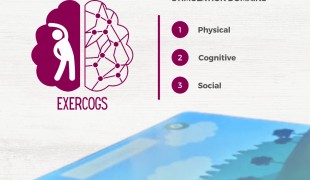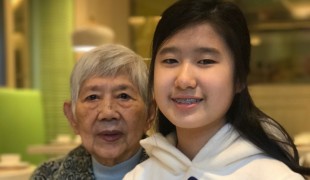- 2164
- 183
- 9
- 3
- 0
- Help Ukraine
About the solution
Barry Dean was concerned about the lack of safety features in powered wheelchairs after a friend’s mother tipped her chair over a ramp, cut her face and broke multiple of her bones. All he could think about was his 19-year-old daughter Katherine who has cerebral palsy and has been in a wheelchair all her life due to having her spine fused with two and a half dozen screws which worried him that if she fell, the trauma could be horrible.
When he began to think about safety, he realized that Katherine’s wheelchair, which costs about $79,000 and weighs over 300 pounds, has only one safety feature, which is it's seat belt. It only takes a small obstacle to flip her over and cause serious harm.
That’s when he got together with his brother, Jered, and a team of engineers to create LUCI, which is a high-tech hardware and software platform that mounts to a power wheelchair to provide stability, security and connectivity. LUCI mounts between the wheels and seat on the back of the wheelchair, and with the help of smart technology, it maps out the environment surrounding the wheelchair so it can navigate between obstacles, thus avoiding collisions, bumps, or possible tipping scenarios.
It also has some features completely customizable, to any wants and needs of a teenager.
This device is also connected with The MyLUCI portal allowing the users and their parents to view their data and set up alerts. LUCI also works with Google and Alexa.
"What started as a labor of love among family members has ultimately created a safer, more stable way for people with disabilities to navigate their world and stay connected to loved ones," Barry said.
Adapted from https://eu.usatoday.com/story/news/health/2020/06/21/fathers-day-dads-lo...
Find out more about this solution here: https://luci.com/
DISCLAIMER: This story was written by someone who is not the author of the solution, therefore please be advised that, although it was written with the utmost respect for the innovation and the innovator, there can be some incorrect statements. If you find any errors please contact the patient Innovation team via info@patient-innovation.com or at carolina.piedade@patient-innovation.com directly.
This solution shall not include mention to the use of drugs, chemicals or biologicals (including food); invasive devices; offensive, commercial or inherently dangerous content. This solution was not medically validated. Proceed with caution! If you have any doubts, please consult with a health professional.
DISCLAIMER: This story was written by someone who is not the author of the solution, therefore please be advised that, although it was written with the utmost respect for the innovation and the innovator, there can be some incorrect statements. If you find any errors please contact the patient Innovation team via info@patient-innovation.com
-
-
627
-
0
-
10544

Fighting dementia with flowers and activities
COMMUNICATION: Communicating, whether by speaking, listening, or other means
CAREGIVING
Gardening
Social interaction
Alzheimer's Disease
Educational/Leisure device (book, toy, game...)
Strategy/Tip
Memory loss
Confusion
Mood swings
Depression or anxiety
Fatigue
Promoting self-management
Managing Neurological Disorders
Building Supportive Community Relationships
Promoting inclusivity and social integration
Raise awareness
Caregiving Support
General and Family Medicine
Neurology
Psychiatry
United States
-
-
-
623
-
0
-
4935

Exercogs: an augmented reality and gamification therapy for dementia prevention
Playing
Social interaction
COMMUNICATION: Communicating, whether by speaking, listening, or other means
BODY BALANCE: Maintaining body balance
Dementia (Alcoholic Dementia, Vascular Dementia)
Alzheimer's Disease
Parkinson's Disease
In Person service
Videogame
Tremors
Muscle cramps or spasms
Difficulty coordinating movements
Muscle weakness
Loss of balance
Trouble with fine motor skills (e.g., writing, buttoning clothes)
Cognitive impairment
Memory loss
Numbness or tingling in the extremities
Twitching or involuntary movements (myoclonus)
Acquired language impairment (Aphasia)
Recovering cognitive function
Managing Neurological Disorders
Enhancing Mental Health
Maintaining Balance and Mobility
Preventing (Vaccination, Protection, Falls, Research/Mapping)
Internal Medicine
Neurology
Portugal
-
-
-
325
-
0
-
4878

Timeless, an app developed by a concerned granddaughter to help her grandmother, who has Alzheimer's, to have a better life
-
 en
en